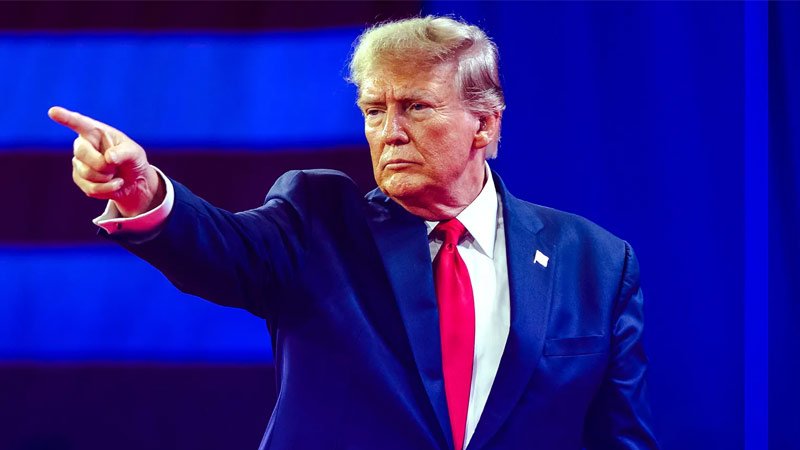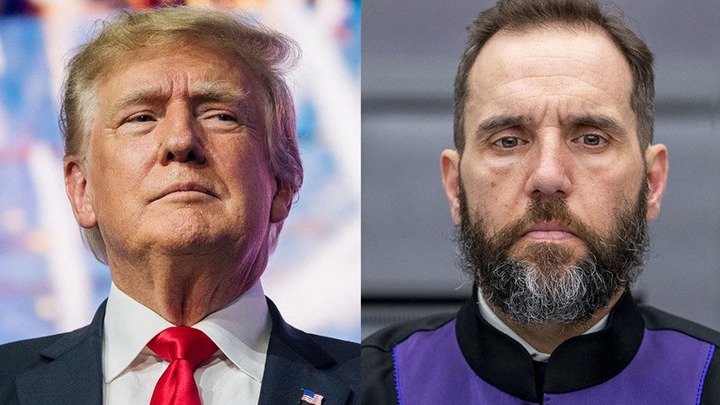“Evangelicals For Harris,” a new political group targeting Christian voters, has released a provocative ad questioning whether former President Donald Trump is a “false prophet.”
According to a report by Reuters on Monday, August 19, 2024, the group aims to persuade evangelical Christians to support Vice President Kamala Harris in the upcoming presidential election, launched its second advertisement on Sunday.
The ad draws attention to a Biblical verse that warns against false prophets, emphasizing that Trump’s behavior and statements align with what scripture describes as “the spirit of the antichrist”.
The group encourages viewers to read 1 John 4 in its entirety, which discusses discerning between true and false spirits.
David Brody, a veteran Christian Broadcasting Network journalist, reported on the ad’s release, noting that it is “likely to ruffle some conservative evangelical feathers”.
He pointed out that Trump supporters would argue that it is actually the Christian Left that misrepresents biblical teachings.
The advertisement is part of a broader strategy by Evangelicals for Harris to encourage Christian voters to reevaluate what they perceive as rhetoric devoid of Christian values and the essential Biblical commandment of “Love Thy Neighbor”.
The group’s website highlights Harris’ background as a Baptist and her “great respect for other faith traditions,” describing her as a “deeply committed and faithful Christian”.
This latest ad follows an earlier one released by the group, which featured a clip of Trump stating he was unsure if he had ever sought God’s forgiveness. report from AP News.
The ad posed the question, “Is there any greater denial of Christ than to say, ‘I do not need his forgiveness?'”
While a significant portion of evangelical voters are expected to support Trump, Brody indicated that the group only needs to sway 20% of evangelicals to secure a victory in the presidential race.
In the 2020 election, 85% of white evangelical Protestant voters who attended church regularly voted for Trump, according to the Pew Research Center.
The ad has generated considerable attention on social media, with responses ranging from enthusiastic endorsements to criticisms.
Some users have declared, “REJECT the false prophet!” while others have drawn parallels between Trump and the warning in Matthew 7:15 about false prophets.
Critics of the ad have expressed frustration, suggesting that some Trump-supporting Christians should acknowledge their divergence from Jesus’s teachings, particularly regarding compassion and treatment of others.
The release of this ad comes at a time when the debate over democracy and leadership in America is particularly heated.
President Biden, in a recent speech marking the third anniversary of the January 6th attack on the Capitol, emphasized the importance of preserving American democracy.
He stated, “Donald Trump’s campaign is about him, not America, not you. Donald Trump’s campaign is obsessed with the past, not the future. He’s willing to sacrifice our democracy, put himself in power”.
Biden also highlighted Trump’s rhetoric, noting, “He calls those who oppose him ‘vermin.’ He talks about the blood of Americans being poisoned, echoing the same exact language used in Nazi Germany”.
As the 2024 election approaches, the role of faith in politics continues to be a contentious issue.
Organizations like Evangelicals for Harris and Christians for Kamala are attempting to bring together moderate and progressive Christians “who feel like the conversation on spirituality has been hijacked by the Christian right,” according to organizer John Pavlovitz.
The effectiveness of these efforts remains to be seen, as Trump has maintained strong support among white evangelical Protestants.
However, the emergence of groups like Evangelicals for Harris suggests a potential shift in the political landscape of faith-based voters.
As the campaign progresses, it is likely that we will see more targeted messaging from both sides, attempting to sway religious voters.
The impact of these ads and the broader debate over faith and politics will undoubtedly play a significant role in shaping the outcome of the 2024 presidential election.





